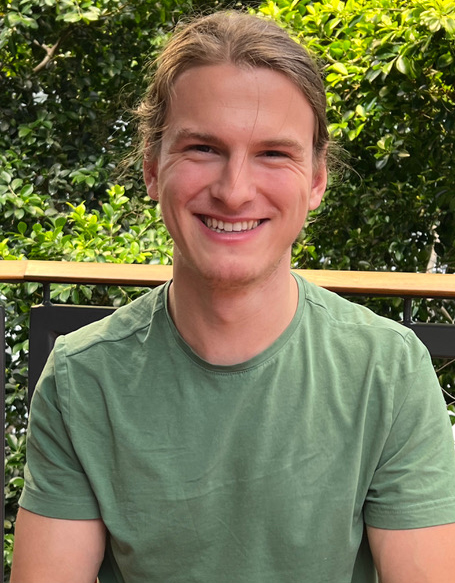Other Seminar
CS Undergrad Honors Thesis: Meshing Parametric Surfaces to Follow Lines of Curvature
This event is free and open to the publicAdd to Google Calendar

Abstract:
Popular 3D graphics software and game engines such as Blender, Unity, Unreal, and Godot do not support rendering parametric surfaces directly. To render parametric surfaces without implementing a custom renderer, parametric surfaces are converted to polygonal meshes. The process of converting the continuous mathematical equations for parametric surfaces to a discrete, polygonal mesh is not well defined. In the limit, meshing surfaces of perfect curvature requires an infinite number of polygons. This thesis focuses on lines of curvature in the exploration of meshing possibilities. Lines of curvature are lines following the principal directions — directions of maximum or minimum curvature — and are found using methods in differential geometry. This thesis presents a method to mesh a parametric surface where the edges of the polygonal mesh follow the surface’s lines of curvature. In addition, this thesis presents algorithms for constructing lines of curvature and a novel method for finding features in the principle direction vector field. The meshing algorithm successfully meshes several different Bézier surface regions where edges follow the lines of curvature. In unsuccessful regions, considerations such as boundary faces, convergence and instability of lines of curvature, and duplicate edges unfortunately cause issues in the output mesh that disrupt the topology flow.
Bio:
Taras Palczynski began his exploration in computer science 10 years ago in pursuit of making video games. He taught himself coding via reverse engineering examples of Unity C# scripts provided by users on online forums. Recently he has been exploring designing infrastructure for audio software engineers to implement microtonal and xenharmonic music technologies into their tools. He began his college career at Washtenaw Community College where he graduated with an associates degree in 2020 and then transferred to U-M. Extremely passionate in video games and music, Taras started two new U-M clubs this semester: Control Your Game, and Casual Music Makers Club. With this being his last semester, he now is looking forward to a gap semester interlaced with a software engineering job search.
Thesis advisor: Sugih Jamin
Second reader: Austin Yarger
 MENU
MENU 
